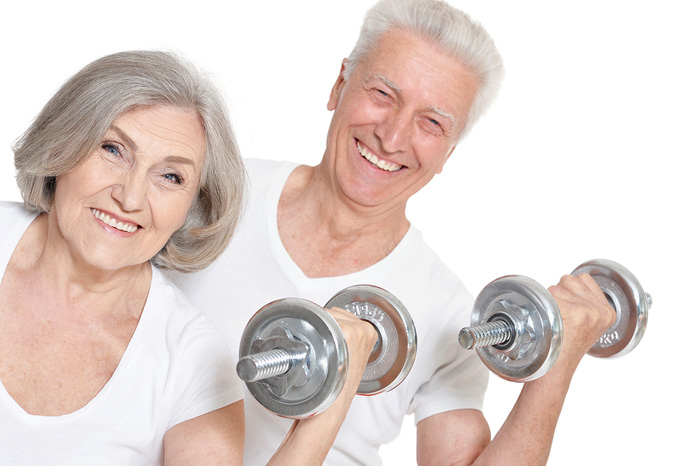The Effects of People Living Longer
Although there are negative social and economic impacts of people living longer, there is always opportunity to make living longer a blessing rather than a burden.
Aging Population Statistics
At the turn of the 20th century, the average newborn in the United States had a life expectancy of 50 years. The life expectancy for Americans in 2017 and 2018 is just under 80 years. That is an impressive increase.
Surprisingly though, the United States now ranks number 53 on a list of highest life expectancy for 2017. Many would assume that the western world would come out on top of this list due to the availability of clean water, healthy food, exercise, and advanced medicine, but that’s not the case.
Monaco leads the world with a life expectancy of nearly 90 years. Japan and Singapore are slightly behind with average life of around 85 years. Countries with the lowest life expectancy includes South Africa and Namibia, both coming in around 50 years of age.
Increased longevity is good news to those who desire to continue participating in life and spending as much time with their loved ones as possible; but there are concerns about the downsides of people living longer when the result is a population with more elderly people than young people.
HANDCRAFTED SINCE 1972 At American Hat Makers every detail is important. Every stitch, design choice and material selection is made with conscious and deliberate thought to bring you the highest quality hats made in America.
Aging Population Problems
The effects of people living longer have both social and economics impacts.
- Extended families are having to combine households to accommodate aging parents.
- Not all families can afford to provide for their elderly loved ones. They’re strained financially and emotionally.
- As the aging population increases, the more demand there is for healthcare. Older people are more likely to need frequent medical treatment.
- Statistically, women live longer than men and are widowed or single in their old age. This leaves fewer people to provide for their physical, emotional, mental, and financial needs.
- Older people are less able to perform physically-demanding jobs or to work full-time. This could have a devastating impact on job markets.
- Many older people don’t have enough money to live for a longer period of time on retirement incomes. They are likely to run out of money just as they need more care.
- There are also concerns about the legal and social rights of the elderly as their numbers increase. There is the potential for some populations to treat their elderly members unfairly or with less dignity than they deserve.
Why Are People Living Longer?
In 2015, a study conducted by the Centers for Disease Control and Prevention, the National Center for Health Statistics, and the U.S. Department of Health and Human Services made a startling discovery. The data balanced the good news of baby boomers living longer with the bad news of deteriorating health for seniors.
So, how is it that baby boomers can live longer than their predecessors just 10 years prior, while exhibiting decreasing health?
The same study showed that baby boomers are taking far more medication than their predecessors. The heavy use of medication to prevent and control diabetes and cholesterol were highlighted as two big medicinal advances that are making a difference in human longevity.
You Can Live a Long Healthy Life -- It's a Choice!
If baby boomers are living longer, even with poor diets and increasing rates of obesity, diabetes, cancer, and heart disease, imagine how long you could live if you ate healthier foods, avoided overeating, drank water instead of chemical-laced sodas, and exercised on a routine basis?

Many long-term studies show that the combination of not smoking, a healthy diet, and regular exercise can prevent 75% of these chronic conditions.
Healthier lifestyles at younger ages would result in a healthier population of elderly people. Most of them could remain independent and mobile until a much older age, placing less stress on their younger family members.
Healthier people living longer can work and earn their own money and contribute to society for a longer period of time.
While there are some valid concerns about people living longer, it would seem that improved health is a logical step towards mitigating those concerns. If we all choose to take care of our bodies, longer lives will be a blessing to everyone!
Remember, it isn't always about how long we live; but, the quality of life during those years. You get to choose!
More Topics That May Interest You
If you or your loved one are in need of a lift chair recliner to live or provide a life of comfortable and affordable independence, it's time to experience
The World’s Most Comfortable & Affordable Power Recliner!
Some of the advertisers on my website are affiliate partners, which means that I may receive a small commission from any sale, at no extra cost to you.
For example, the Amazon affiliate advertising program is designed to provide a means for sites to earn fees by advertising and linking to amazon.com.
Your tips and purchases help to support this free-information website.
Thank you.
The content of this website is for informational purposes only and not intended to be taken as a replacement for professional medical advice, care, diagnosis or treatment by a doctor, dietitian, physical therapist, nutritionist or fitness instructor.
DO NOT BEGIN ANY EXERCISE PROGRAM WITHOUT CHECKING WITH YOUR DOCTOR FOR UNDERLYING CONDITIONS THAT MAY PREVENT YOU FROM DOING SO.








